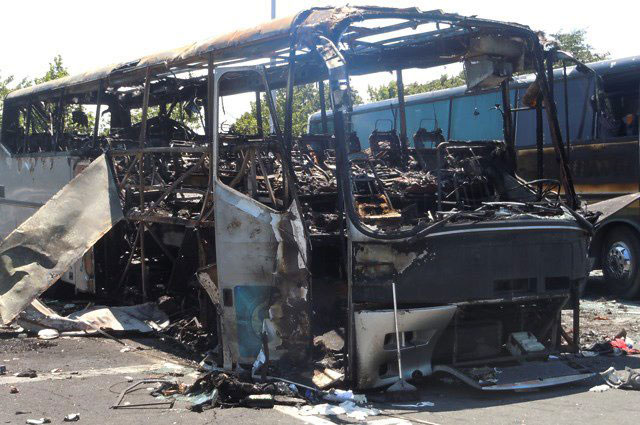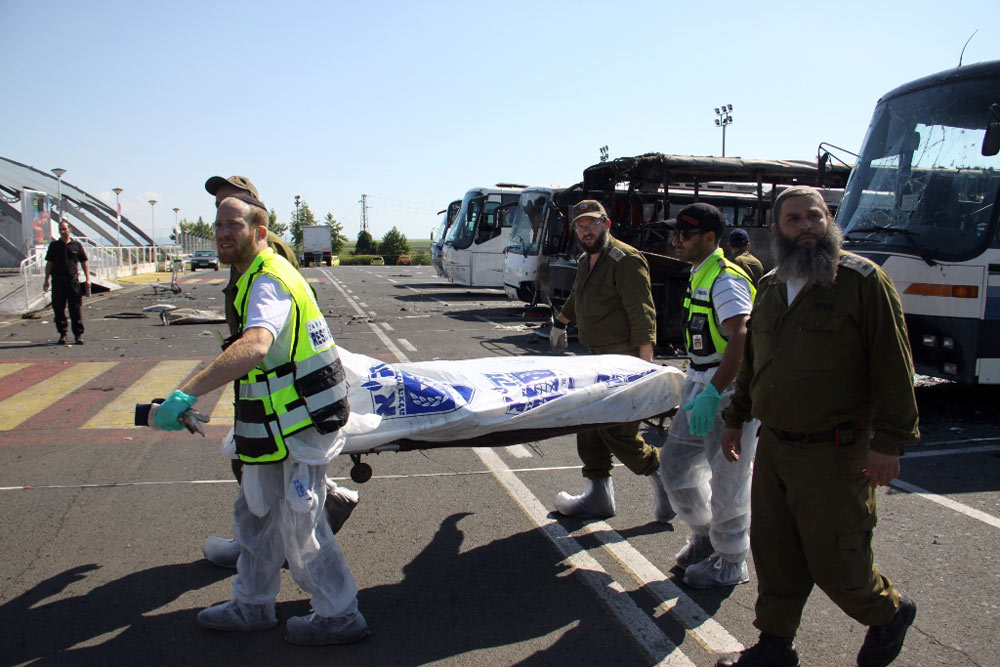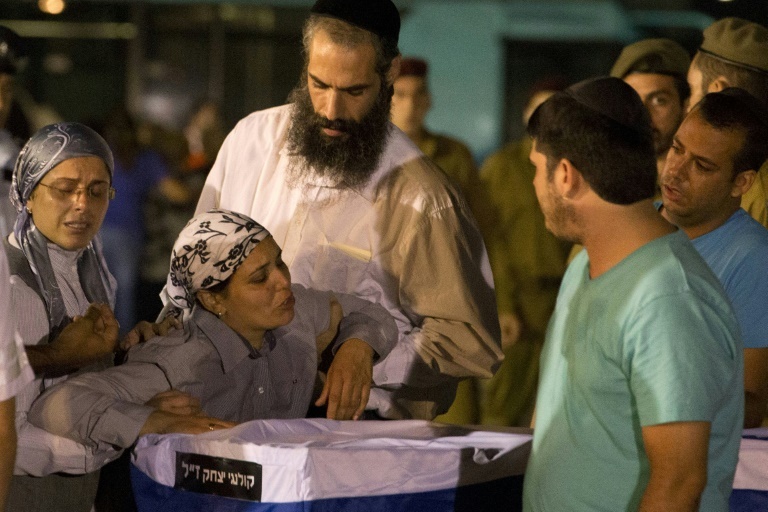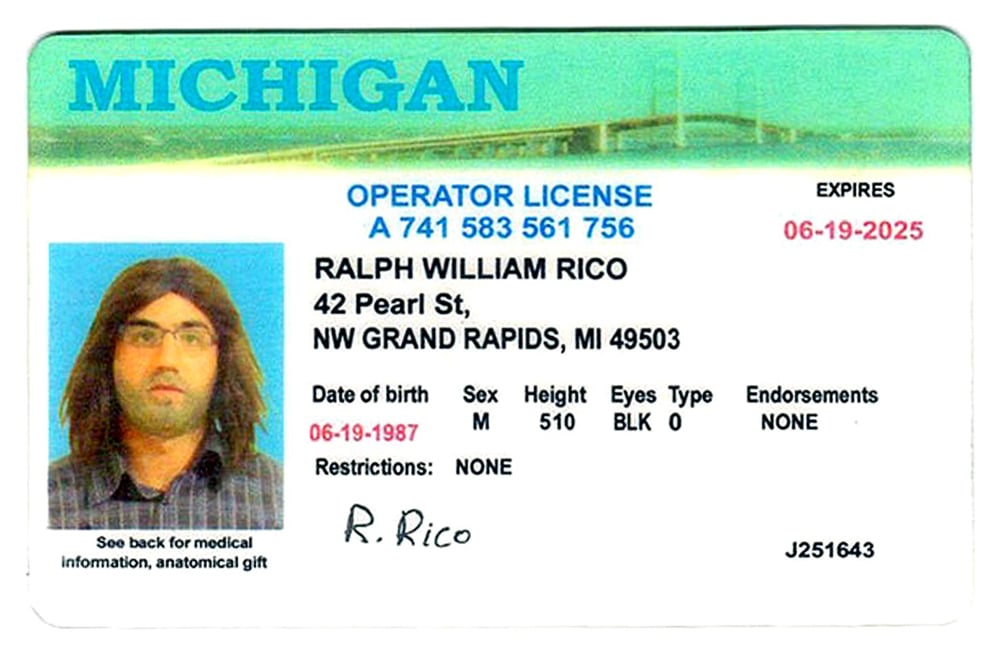A Bulgarian court sentenced two men to life imprisonment without parole on Monday over a 2012 bus bombing that killed five Israeli tourists and a Bulgarian driver at a Black Sea airport.
The Specialised Criminal Court found Meliad Farah, 39, an Australian of Lebanese origin, and Hassan El Hajj Hassan, 32, a Canadian of Lebanese origin, guilty of their involvement in an attack at an airport in the resort city of Burgas on July 18, 2012. The two men were tried in absentia.
4 View gallery


Remains of the Burgas Airport bus following the deadly 2012 terror attack
(Photo: AP)
Judge Adelina Ivanova, delivering the verdict before some 15 journalists wearing protective face masks due to the coronavirus pandemic, said details of the verdict will be published at a later stage.
The verdict can be appealed within 15 days.
Both men were charged in mid-2016 as accomplices of the attacker, Franco-Lebanese citizen Mohamad Hassan El Husseini who was also killed in the attack.
Airport CCTV footage showed El Husseini wandering inside the airport's arrivals hall with a backpack on his back shortly before the explosion that tore through a bus outside the terminal that was headed to Sunny Beach, a popular summer destination on the Black Sea.
According to witness accounts, he tried to put his backpack inside the luggage compartment of the bus full of Israelis when it exploded.
4 View gallery


Health workers at Burgas Airport preparing to move the body of one of the attack's victim back to Israel
(Photo: Dano Monkotowitz)
Farah and Hassan were put on trial in absentia in January 2018 for a terrorist attack and manslaughter but were never tracked down.
According to an investigation into the bombing, they arrived in Bulgaria from Romania in June 2012 and left again in the evening after the attack.
The tourists who were killed were all in their twenties, except for a pregnant 42-year-old woman.
Prosecutors were unable to determine if the explosive was triggered by the bomber or remotely detonated by one of two men, who had also helped him to assemble the explosive device.
Bulgarian and Israeli authorities blamed the attack on the Lebanese Shi'ite movement Hezbollah for the attack that also injured 38 Israeli tourists, playing a part in a subsequent European Union decision to blacklist Hezbollah's military wing as a terrorist organization. The Iranian-backed group has denied involvement.
It was the deadliest attack against Israelis abroad since 2004.
Hezbollah 'links'
Prosecutor Evgenia Shtarkelova told reporters last week she "pleaded for the heaviest punishment because I consider that this terrorist act deserves to be punished in the heaviest possible way."
A public defender for Hassan, lawyer Zhanet Zhelyazkova, countered that evidence for her client's alleged complicity with the attack was "only circumstantial."
Shtarkelova however said that the nature of the explosive device, the fake U.S. driver's licenses used by the two men, their Lebanese descent and some family ties "link both defendants (...) and the attack to the terrorist organization Hezbollah."
The investigation into the attack found that the fake licenses were made by the same printer at a university in Lebanon. It also said the suspects received money from people linked to Hezbollah.
In recent comments on the case, Bulgaria's chief prosecutor Ivan Geshev stressed that Hezbollah was behind the attack "in terms of logistics and financing".
The prosecution confirmed that it had no clue about the two men's whereabouts and that they are still sought on an Interpol red notice.



